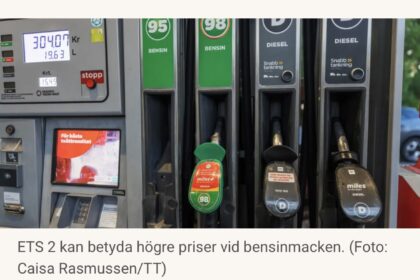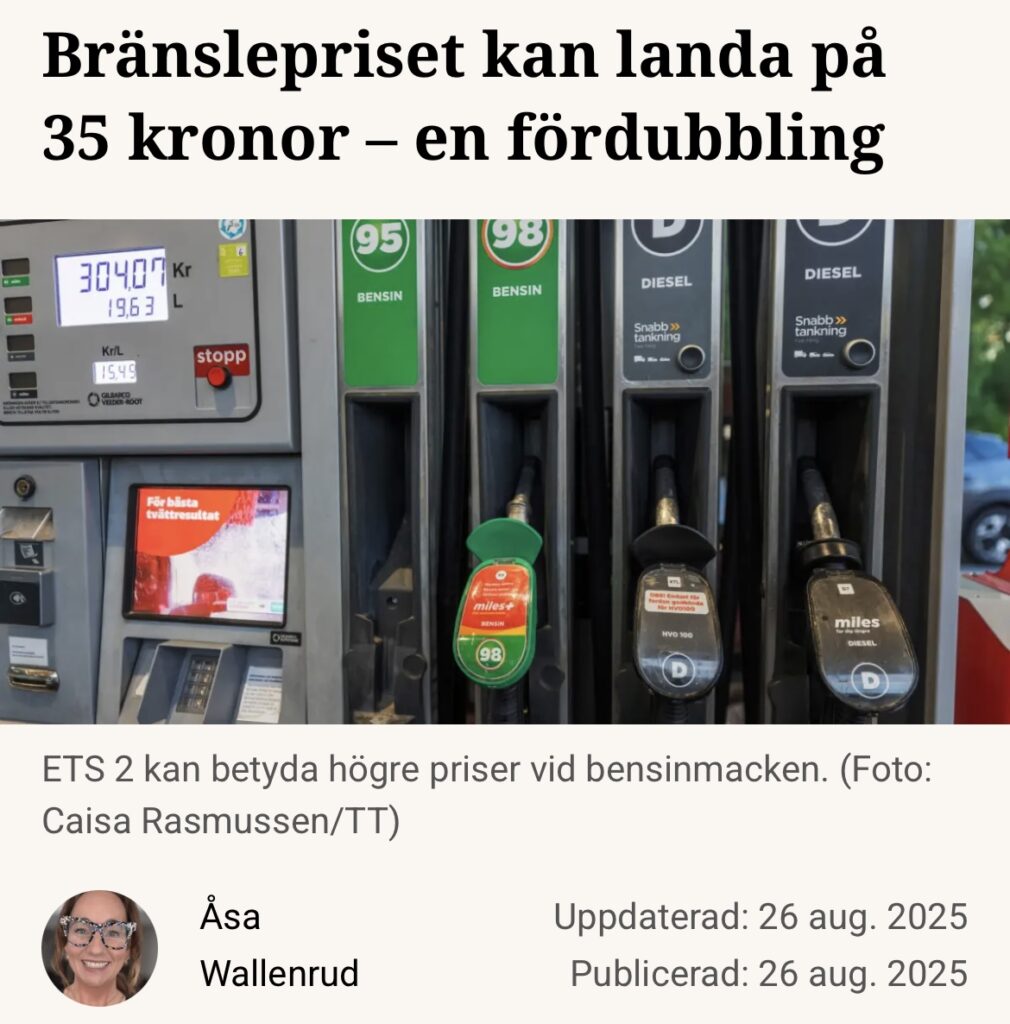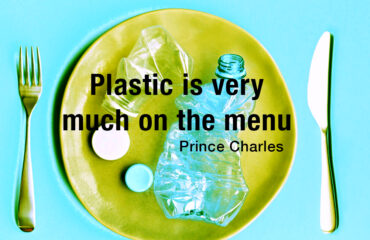

The financial burden for households that depend on cars could soon become significantly heavier..
From 2027 onwards, the EU will introduce a new emissions trading system, called ETS 2, which covers more sectors than before, including road transport. The system means that companies that sell fossil fuels such as petrol and diesel must buy emissions rights, which in turn adds an extra cost to each litre of fuel.
These costs are then expected to be passed on to consumers, leading to higher prices.
According to Viktor Gunnarsson from the industry organisation Drivkraft Sverige, the price increase could hit between SEK 1 and 2 per litre as early as 2027.
The following year, the price could increase further to between SEK 2 and 2.60 per litre. At the same time, other experts warn of significantly higher price increases, writes Carup.
Car expert Ronny Svensson has speculated on prices of up to 35 kronor per liter, which would mean a total doubling compared to today’s levels, he tells Carup.
The Swedish Institute of Economic Research has made its own calculations on behalf of the government and they show that a family with two children could have increased expenses of between 2,700 and 6,800 kronor per year.
However, the institute emphasizes that there is great uncertainty about future prices for emission rights. According to the Swedish Institute of Economic Research’s basic scenario, gasoline prices could rise by 1.32 kronor per liter and diesel prices by 1.41 kronor per liter.
Sweden must become independent regarding domestic production of non-fossil fuels and meet Sweden’s need for emergency stocks of the same… … …
A solution is closer to what many people know: SWESTEP, the Swedish innovation company with a process technology that is both economically and environmentally defensible.
Swestep’s Technology is based on a patented process that converts organic waste, residual products and even plastic into synthetic renewable fuels and/or crude oil that can help many industries become fossil-free. Through a patented catalytic process that mimics nature’s own decomposition, but much faster and more controlled, the material is broken down into hydrocarbons – completely without using fossil resources.
Are you interested – Contact our CEO
SOURCE – DagensPS (Link to article in Swedish here)



